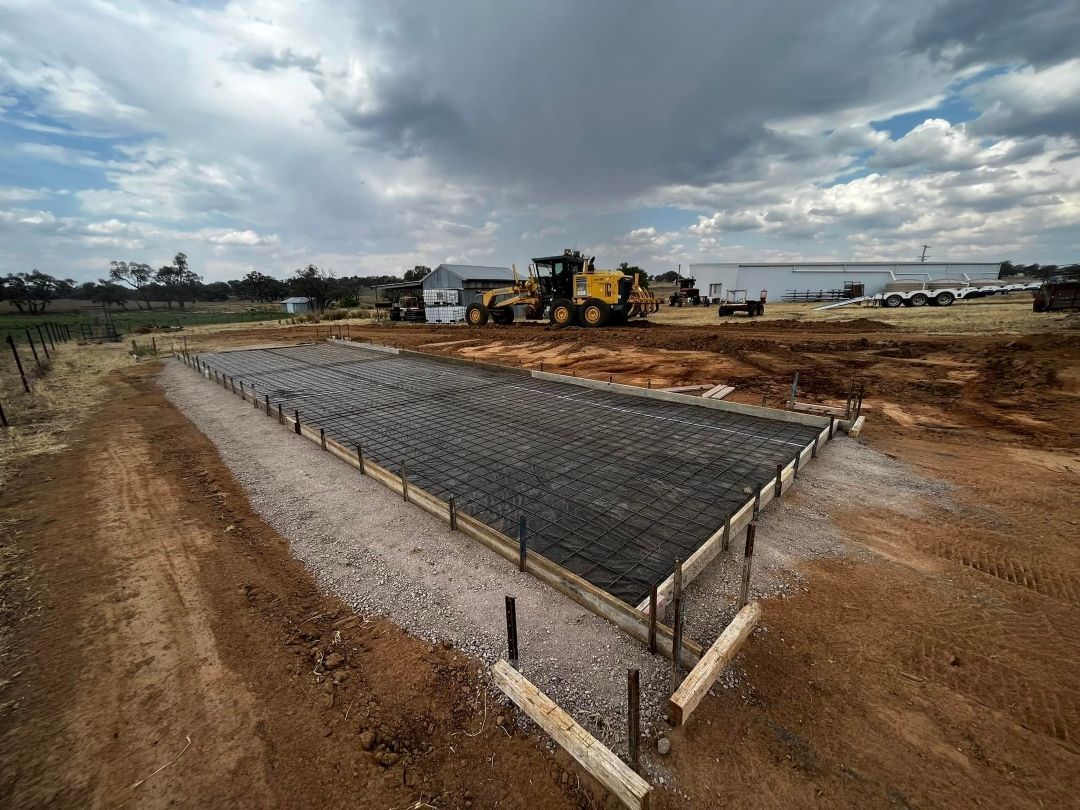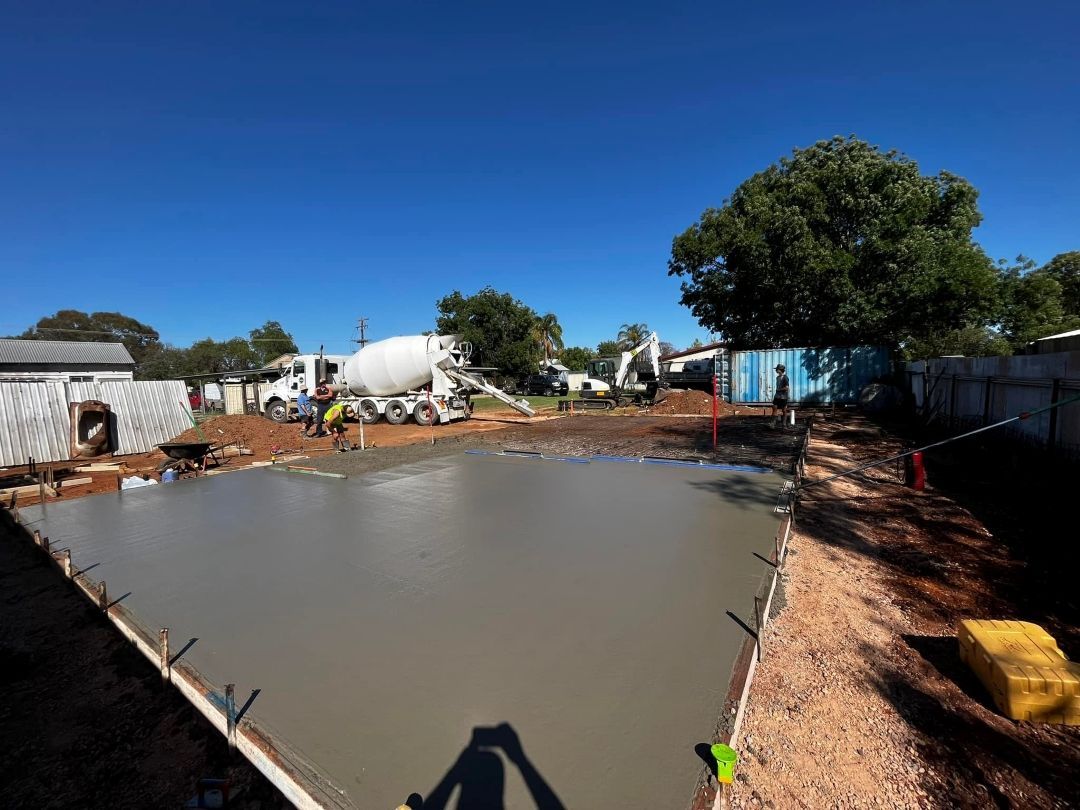Concreter in Nyngan
- Concrete & Earthworks Specialists
- Servicing the Orana & Hunter Regions
- Projects of Every Size & Scope
Request a Call Back in Nyngan
Thank you for contacting All Aspects Concreting & Earthworks Pty Ltd.
We will be in touch soon.
Please try again later.
Nyngan Concreter
When you need a reliable concreter in Nyngan, All Aspects Concreting & Earthworks is ready to deliver. We provide a full range of concreting services for residential, commercial, industrial, rural and civil projects, backed by expert earthworks and site preparation.
Whether it’s a shed slab, a machinery pad, a driveway or groundwork for a local business, our team brings the right skills and machinery to every job. In a town built tough against the outback, you need concrete that’s just as strong — and that’s precisely what we deliver. From the town centre to farms spread across the Bogan River region, we work hard to support Nyngan projects with quality you can trust.
- Residential, commercial, industrial, rural and civil concreting
- Earthworks, excavation and full site preparation services
When you want concreting services in Nyngan that are built for real conditions and real results, talk to All Aspects Concreting & Earthworks today on
0408 294 122.
Concrete Built for Tough Conditions
Nyngan sits right at the gateway to the outback, where heat, dust, distance and hard work are part of everyday life. It’s a town with a big heart and serious resilience and every project here needs concrete that’s made to match.
From upgrading rural infrastructure, building a new shed, laying driveways to preparing a site for expansion, we deliver concrete solutions that stand strong against everything the Bogan River country can throw at them. We know that every job across Nyngan, from town streets to remote paddocks, comes with its own set of challenges — from soil movement and dust storms to access and scheduling. Our team has the machinery, skills and experience needed to deliver strong, lasting results without the drama.
- Concrete and earthworks built for remote and rural projects
- Strong, reliable finishes ready for the harshest conditions
When you need concreting made for Nyngan’s toughness and pride, contact All Aspects Concreting & Earthworks today.
Frequently Asked Questions
How are shed slabs and machinery pads different from standard slabs?
Shed slabs and machinery pads are heavier and stronger than standard residential slabs. They typically use thicker concrete pours, often reinforced with rebar grids or heavy-duty mesh to support the high loads from tractors, trucks and heavy equipment. Subgrade preparation is critical, with additional compaction and sometimes a thicker gravel base to prevent shifting or settling. Edge thickening, where the perimeter of the slab is deeper, is common to handle wall and post loads. Proper curing is essential to maximise durability and prevent early cracking under constant pressure.
How is civil concrete designed to meet council and engineering standards?
Civil concrete projects must adhere to strict standards such as Australian Standard AS 3600, which governs the design and performance of concrete structures. Engineers specify the required concrete strength, reinforcement methods and construction practices to ensure durability, safety and compliance. Council requirements may also include standards for thickness, drainage, accessibility and traffic loads. Civil concrete is often designed with higher compressive strength mixes and additional reinforcement to handle public use and environmental stress. Detailed planning, inspection and certification processes are required at every stage to ensure full regulatory compliance.
Why is subgrade preparation critical for industrial concreting?
Subgrade preparation is vital for industrial concreting because heavy machinery and constant vehicle traffic place extreme stresses on slabs. If the ground beneath is unstable, poorly compacted or uneven, the concrete can crack, settle or fail prematurely. Proper preparation involves removing unsuitable soil, compacting the base material to engineering standards and sometimes using stabilisation techniques like geogrids or chemical additives. A strong, stable subgrade distributes loads evenly across the slab, minimising movement and reducing maintenance costs over time. Without it, even the best-poured slab cannot perform under industrial conditions.






